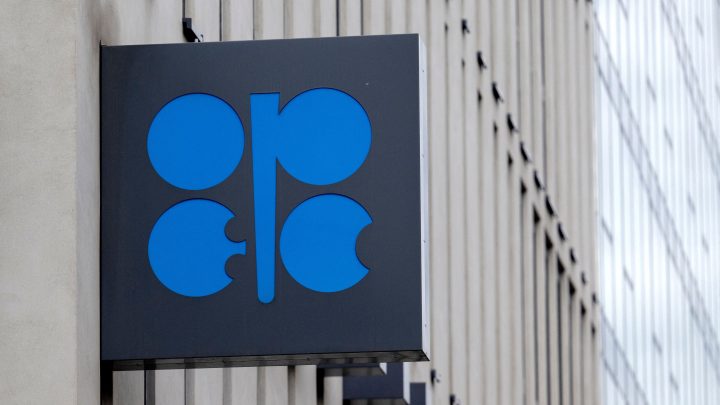
OPEC+ members say they’ll cut oil production. Global markets don’t seem to believe them.
OPEC+ members say they’ll cut oil production. Global markets don’t seem to believe them.

As the United Nations global climate summit — COP28 — kicked off in Dubai on Thursday, there was a parallel, sort of related meeting dominated by Dubai’s mega-oil-producing neighbor, Saudi Arabia. OPEC+ — that’s the major Middle Eastern and African oil producers, along with Russia, Malaysia and Mexico — held a virtual meeting to try to set production levels for next year.
Members want to boost global oil prices to support their economies. And at this meeting, that meant maintaining the cuts Saudi Arabia and Russia agreed to earlier this year — and then cutting production even more next year. Reports from the meeting say that could amount to a supply reduction of 2 million barrels a day by early 2024.
You’d think that news would drive oil futures higher, and it did on Thursday … for a while.
Then, it didn’t. West Texas Intermediate and Brent crude were both down more than 2% for the day in late trading.
What’s going on?
Of the 2 million barrels a day OPEC+ members are promising to cut, at least half would come from the Saudis. That would put a significant dent in global oil supply, said Columbia Business School climate economist Gernot Wagner.
“This is the Saudis throwing their weight around, to basically say: ‘While you over there in Dubai might be talking climate, look at us over here — more important to global energy markets,'” Wagner said.
So far, the impact hasn’t amounted to much. On Thursday, Brent crude was trading well below the Saudis’ target price.
“The market is just saying, ‘Well, I don’t really think that your cut will be as impactful as needed to be able to preserve these prices,'” said Elina Ribakova, a senior fellow at the Peterson Institute for International Economics.
“We have historically had this problem, where Saudi would take the lead on the cuts, and then others would be much more iffy, or much less committed to the cuts,” Ribakova said.
Meanwhile, cutting global oil supply may be less effective than it used to be in raising prices, said Gernot Wagner. That’s because oil demand is faltering as renewable energy replaces fossil fuels in parts of the world.
“China’s oil demand is peaking much faster than anticipated because of this amazing increase in EVs, putting a downward pressure on oil prices,” Wagner said.
Also, while the Saudis, Russians and others are pulling back … “here in the U.S., we’re pumping record amounts of oil,” said Andrew Gross at AAA.
AAA reports the average price of a gallon of gas was $3.25 on Thursday, down from this year’s peak of $3.88 in September.
There’s a lot happening in the world. Through it all, Marketplace is here for you.
You rely on Marketplace to break down the world’s events and tell you how it affects you in a fact-based, approachable way. We rely on your financial support to keep making that possible.
Your donation today powers the independent journalism that you rely on. For just $5/month, you can help sustain Marketplace so we can keep reporting on the things that matter to you.











